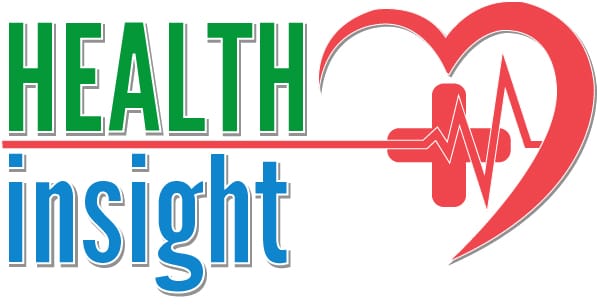Vitamins and supplements play a crucial role in maintaining overall health and addressing specific nutritional needs. However, their efficacy can be influenced by various factors, including the timing of consumption.
Importance of Timing
The timing of vitamin intake can impact absorption, effectiveness, and potential side effects. Whether you take your vitamins before, during, or after a meal can significantly affect how your body processes and utilizes these essential nutrients.
Q1:Taking Vitamins Before a Meal
Benefits of Taking Vitamins before a Meal
- Enhanced Absorption: Some vitamins, such as fat-soluble vitamins (e.g., Vitamin A, D, E, and K), are better absorbed in the presence of dietary fat. Taking these vitamins before a meal that contains healthy fats can optimize their absorption.
- Prevents Interference: Certain nutrients may compete for absorption when taken together. Taking vitamins before a meal ensures that they are absorbed without interference from other nutrients or medications.
Taking Vitamins After a Meal
Advantages of Taking Vitamins After a Meal
- Reduced Risk of Gastric Upset: Some vitamins and minerals may cause gastrointestinal discomfort when taken on an empty stomach. Consuming them after a meal can help minimize the risk of stomach upset or nausea.
- Improved Nutrient Utilization: Pairing vitamins with food can enhance their utilization by the body. Food provides a vehicle for nutrient transport and may enhance the bioavailability of certain vitamins.
Best Practices for Vitamin Consumption
- Follow Recommendations: Always follow the recommended dosage and timing provided on the supplement label or as directed by your healthcare provider.
- Consider Individual Needs: Individual factors, such as dietary habits, medical conditions, and medication interactions, should be considered when determining the best time to take vitamins.
- Experiment and Observe: Pay attention to how your body responds to different timing strategies. Experiment with taking vitamins before, during, and after meals to determine what works best for you.
Q2:When to take vitamin c tablets before or after meal
Importance of Timing for Vitamin C Intake
The human body does not produce vitamin C naturally, making it essential to obtain this nutrient through dietary sources or supplements. However, the timing of vitamin C intake can impact its bioavailability and utilization by the body.
Taking Vitamin C Before a Meal
Benefits of Taking Vitamin C Before a Meal
- Enhanced Absorption: Consuming vitamin C on an empty stomach allows for rapid absorption into the bloodstream, ensuring maximum bioavailability.
- Avoidance of Interference: Taking vitamin C before a meal minimizes the risk of nutrient interference, as it is not competing with other nutrients for absorption.
Taking Vitamin C after a Meal
Advantages of Taking Vitamin C After a Meal
- Reduced Gastric Discomfort: For individuals with sensitive stomachs, taking vitamin C after a meal can help alleviate potential gastrointestinal discomfort or irritation.
- Improved Tolerance: Pairing vitamin C with food may enhance its tolerance, particularly for those prone to experiencing stomach upset with supplements.
Factors to Consider
- Individual Tolerance: The optimal timing for taking vitamin C tablets may vary from person to person based on individual tolerance levels and gastrointestinal sensitivity.
- Personal Preference: Some individuals may find it more convenient to take vitamin C either before or after a meal based on their daily routine and habits.
- Health Conditions: Certain medical conditions or medications may influence the timing of vitamin C supplementation. It’s advisable to consult with a healthcare professional for personalized guidance.
Q3:When to take vitamin c tablets morning or night
or
Taking vitamins at night vs morning
Benefits of Taking Vitamin C in the Morning
1. Energy Boost:
Taking vitamin C in the morning can provide an energy boost to kickstart your day, helping you feel more alert and revitalized.
2. Immune Support:
By consuming vitamin C in the morning, you provide your body with essential nutrients to support immune function throughout the day, potentially reducing the risk of illness.
3. Skin Health:
Morning supplementation with vitamin C may promote healthier skin by supporting collagen synthesis and protecting against environmental damage.
Benefits of Taking Vitamin C at Night
1. Relaxation:
Consuming vitamin C at night can be part of a bedtime routine, helping you unwind and relax before sleep.
2. Overnight Recovery:
Vitamin C taken at night may aid in overnight recovery processes, supporting tissue repair and immune function while you sleep.
3. Antioxidant Protection:
Nighttime supplementation with vitamin C can provide antioxidant protection during periods of cellular repair and regeneration.
Factors to Consider
- Individual Preference: The ideal timing for taking vitamin C tablets may vary based on individual preferences, routines, and lifestyle factors.
- Potential Interaction: Consider any potential interactions between vitamin C supplements and other medications or supplements you may be taking.
- Digestive Sensitivity: Some individuals may experience gastrointestinal discomfort when taking vitamin C on an empty stomach. Experimentation can help determine the best timing for optimal tolerance.
Q4: Will taking vitamins on an empty stomach make you throw up
How Vitamins Work in the Body
Vitamins are essential for maintaining optimal health and well-being. They support processes such as:
- Energy production
- Immune function
- Cell repair and maintenance
- Antioxidant defense
- Hormone regulation
Potential Side Effects of Taking Vitamins on an Empty Stomach
1. Nausea:
Taking certain vitamins on an empty stomach can irritate the stomach lining, leading to feelings of nausea or queasiness.
2. Vomiting:
In more severe cases, taking vitamins without food may trigger vomiting, especially if the supplements contain high doses of certain nutrients.
3. Gastrointestinal Upset:
Some individuals may experience stomach cramps, bloating, or diarrhea when taking vitamins on an empty stomach.
Tips for Minimizing Discomfort
1. Take Vitamins with Food:
To reduce the risk of nausea and other digestive issues, consider taking your vitamins with a meal or snack. The presence of food in the stomach can help buffer the effects of the supplements.
2. Choose Gentle Formulations:
Opt for vitamin supplements that are formulated to be gentle on the stomach, such as those labeled as “gentle” or “easy to digest.”
3. Stay Hydrated:
Drink plenty of water when taking vitamins to help facilitate their absorption and minimize gastrointestinal discomfort.
Q5: Will taking vitamins on an empty stomach make you sick
Potential Effects of Taking Vitamins on an Empty Stomach
1. Nausea:
Some individuals may experience feelings of nausea when taking vitamins on an empty stomach. This discomfort is often attributed to the vitamins’ acidic nature, which can irritate the stomach lining.
2. Upset Stomach:
Taking certain vitamins without food may cause gastrointestinal upset, such as stomach cramps, bloating, or diarrhea, in some individuals.
3. Vomiting:
In more severe cases, taking vitamins on an empty stomach may trigger vomiting, especially if the supplements contain high doses of certain nutrients.
Factors Influencing the Experience
1. Type of Vitamin:
Certain vitamins, particularly fat-soluble ones like vitamin D and vitamin E, may be more likely to cause discomfort when taken without food due to their reliance on dietary fat for absorption.
2. Individual Sensitivity:
Some individuals may be more sensitive to the effects of vitamins on an empty stomach, while others may tolerate them well.
3. Dosage:
The dosage of vitamins can also influence whether they cause feelings of sickness when taken without food. Higher doses are more likely to lead to adverse effects.
Tips for Taking Vitamins
1. Take with Food:
To minimize the risk of experiencing discomfort, consider taking your vitamins with a meal or snack. This can help buffer the vitamins’ effects on the stomach.
2. Choose the Right Formulation:
Opt for vitamin supplements that are formulated to be gentle on the stomach, such as those labeled as “gentle” or “easy to digest.”
3. Stay Hydrated:
Ensure you’re adequately hydrated when taking vitamins, as this can help facilitate their absorption and reduce the risk of gastrointestinal discomfort.
Q6: Vitamin d before or after meal
Taking Vitamin D Before Meals
Some individuals prefer taking vitamin D supplements on an empty stomach, believing it enhances absorption. The logic behind this is that without food in the stomach, the supplement can be digested more efficiently, allowing for better absorption into the bloodstream.
While taking vitamin D before a meal may have its advantages in terms of absorption efficiency, it also comes with drawbacks. For some people, especially those with sensitive stomachs, taking supplements without food can lead to gastrointestinal discomfort or nausea.
Taking Vitamin D After Meals
On the other hand, taking vitamin D supplements after a meal is a common practice for many individuals. Consuming the supplement alongside food, particularly those containing healthy fats, can aid in its absorption. Fatty foods help increase the solubility of vitamin D, allowing it to be absorbed more effectively by the body.
However, taking vitamin D after a meal may also pose challenges. The presence of food in the stomach can slow down the absorption process, potentially reducing the overall uptake of the supplement.
Recommendations from Experts
Healthcare professionals often provide guidance on the optimal timing for taking vitamin D supplements. According to experts, there isn’t a one-size-fits-all answer. Instead, individual factors such as dietary habits, medical conditions, and lifestyle should be considered.
Optimal Timing for Vitamin D Supplementation
Ultimately, the best time to take vitamin D supplements depends on personal preferences and lifestyle factors. Some individuals may find it more convenient to take their supplements before meals to avoid any interference with digestion, while others may prefer taking them after meals to minimize the risk of stomach upset.
Regardless of the timing, consistency is key when it comes to vitamin D supplementation. Whether you choose to take it before or after meals, establishing a regular routine can help ensure that you meet your daily requirements and reap the benefits of this essential nutrient.
Q7: Is it better to take vitamin d every day or once a week?
When considering whether it’s better to take vitamin D every day or once a week, it’s essential to weigh the pros and cons of each approach. Daily intake ensures consistent levels of this vital nutrient in the body, which can be beneficial for maintaining overall health. However, some individuals may find it challenging to remember to take supplements daily or may experience digestive discomfort from frequent ingestion. On the other hand, weekly intake offers convenience and may be preferred by those with busy schedules, but it may lead to fluctuations in blood levels of vitamin D throughout the week. Factors such as individual needs, lifestyle, and health status should be considered when determining the optimal frequency of supplementation. Consulting with a healthcare professional can provide personalized recommendations tailored to specific circumstances.
Q8:Is it necessary to take vitamin d with calcium
Do You Need to Take Vitamin D with Calcium?
While both vitamin D and calcium are essential for bone health, whether you need to take them together depends on various factors. Individuals who have low dietary intake of calcium or limited sun exposure may benefit from combined supplementation. However, it’s essential to consider individual needs and consult with a healthcare professional to determine the appropriate approach.
Benefits of Taking Vitamin D and Calcium Together
Taking vitamin D and calcium together can enhance the absorption and utilization of calcium in the body, promoting optimal bone health. This synergistic relationship ensures that calcium is effectively incorporated into bone tissue, reducing the risk of fractures and osteoporosis.
Best Practices for Taking Vitamin D and Calcium
When supplementing with vitamin D and calcium, it’s crucial to consider timing and dosage. Experts recommend taking vitamin D with meals containing fat to enhance absorption and pairing it with calcium-rich foods or supplements for maximum benefit. Additionally, dividing the daily dose into smaller increments may improve absorption and reduce the risk of gastrointestinal discomfort.
Q9: do vitamins cause weight gain
While some people do hoard bottles of their preferred supplements, others refuse to take them on the belief that they will make them more ravenous. Do vitamins actually make you gain weight? To put it simply, no. Since vitamins don’t contain many calories, they can’t immediately make you gain weight.
FAQs
Can I Take Vitamins with Food?
Yes, it’s generally recommended to take vitamins with food. Taking vitamins with meals or snacks can help improve absorption and minimize the risk of stomach discomfort or nausea.
What Are the Best Foods to Take Vitamins With?
The best foods to take vitamins with are those that contain healthy fats, as they can enhance the absorption of fat-soluble vitamins like A, D, E, and K. Examples include avocados, nuts, seeds, and fatty fish.
Can I Take Multiple Vitamins Together?
Yes, you can take multiple vitamins together. However, it’s essential to be mindful of potential interactions between different vitamins and minerals. Consulting with a healthcare professional can help ensure that your supplement regimen is safe and effective.
Are There Any Vitamins That Should Not Be Taken Together?
Yes, certain vitamins and minerals may interact with each other or compete for absorption when taken together in high doses. For example, taking calcium supplements with iron supplements may reduce the absorption of iron. It’s essential to follow recommended dosage guidelines and consult with a healthcare professional if you have any concerns.
Should I Take My Vitamins in the Morning or Evening?
The timing of vitamin intake is a personal preference and may depend on factors such as lifestyle and convenience. Some people prefer taking vitamins in the morning to kickstart their day, while others find it more convenient to take them in the evening. Ultimately, the most important thing is to take your vitamins consistently, regardless of the time of day.
Can I Take Vitamins with Coffee or Tea?
Yes, you can take vitamins with coffee or tea. However, excessive caffeine intake may interfere with the absorption of certain vitamins and minerals, such as iron. It’s best to consume coffee or tea in moderation and consider taking vitamins with water or another beverage if you have concerns about caffeine.
Can I Take Vitamins with Alcohol?
While it’s generally safe to take vitamins with alcohol in moderation, excessive alcohol consumption can interfere with the absorption and utilization of certain vitamins and minerals. It’s essential to consume alcohol responsibly and consider limiting your intake if you’re concerned about its effects on your nutrient status.
Can I Take Vitamins with Medications?
It’s essential to be cautious when combining vitamins with medications, as certain vitamins and minerals may interact with drugs and affect their effectiveness. It’s always best to consult with a healthcare professional before starting any new supplement regimen, especially if you’re taking prescription medications.
What Should I Do If I Forget to Take My Vitamins?
If you forget to take your vitamins, don’t worry. Simply take them as soon as you remember, unless it’s close to the time of your next dose. Avoid doubling up on doses to make up for missed ones, as this can increase the risk of side effects.
How Long Does It Take for Vitamins to Work?
The timeframe for experiencing the effects of vitamins can vary depending on factors such as the type of vitamin, dosage, and individual response. In general, it may take several weeks or even months of consistent supplementation to notice significant improvements in health outcomes.
Can I Take Vitamins If I Have Dietary Restrictions?
Yes, there are many vitamin supplements available that are suitable for individuals with dietary restrictions, such as vegetarian or vegan diets, gluten intolerance, or food allergies. Look for supplements that are labeled as free from allergens or animal products, and consult with a healthcare professional if you have specific concerns.
Are There Any Side Effects of Taking Vitamins?
While vitamins are generally safe when taken as directed, excessive intake of certain vitamins or minerals can lead to adverse effects. Common side effects may include digestive issues, headaches, or allergic reactions. It’s essential to follow recommended dosage guidelines and consult with a healthcare professional if you experience any unusual symptoms.
Can I Take Vitamins If I’m Pregnant or Breastfeeding?
Pregnant and breastfeeding women have increased nutrient needs and may benefit from taking prenatal vitamins to support maternal and fetal health. It’s essential to choose prenatal vitamins specifically formulated for pregnancy and consult with a healthcare professional for personalized recommendations based on individual needs and circumstances.
Should I Consult a Doctor Before Taking Vitamins?
Yes, it’s always a good idea to consult with a healthcare professional before starting any new supplement regimen, especially if you have underlying health conditions or are taking medications. A doctor or registered dietitian can help determine your specific nutrient needs and recommend appropriate supplements based on your individual health status and goals.
Discover more about vitaminshttps://www.naturemade.com/blogs/health-articles/when-to-take-vitamin-d-morning-or-night
Related articlehttps://purewellbeinghealth.com/uncategorized/will-vitamin-c-fade-microblading11-most-important-question-about-vitamins/





